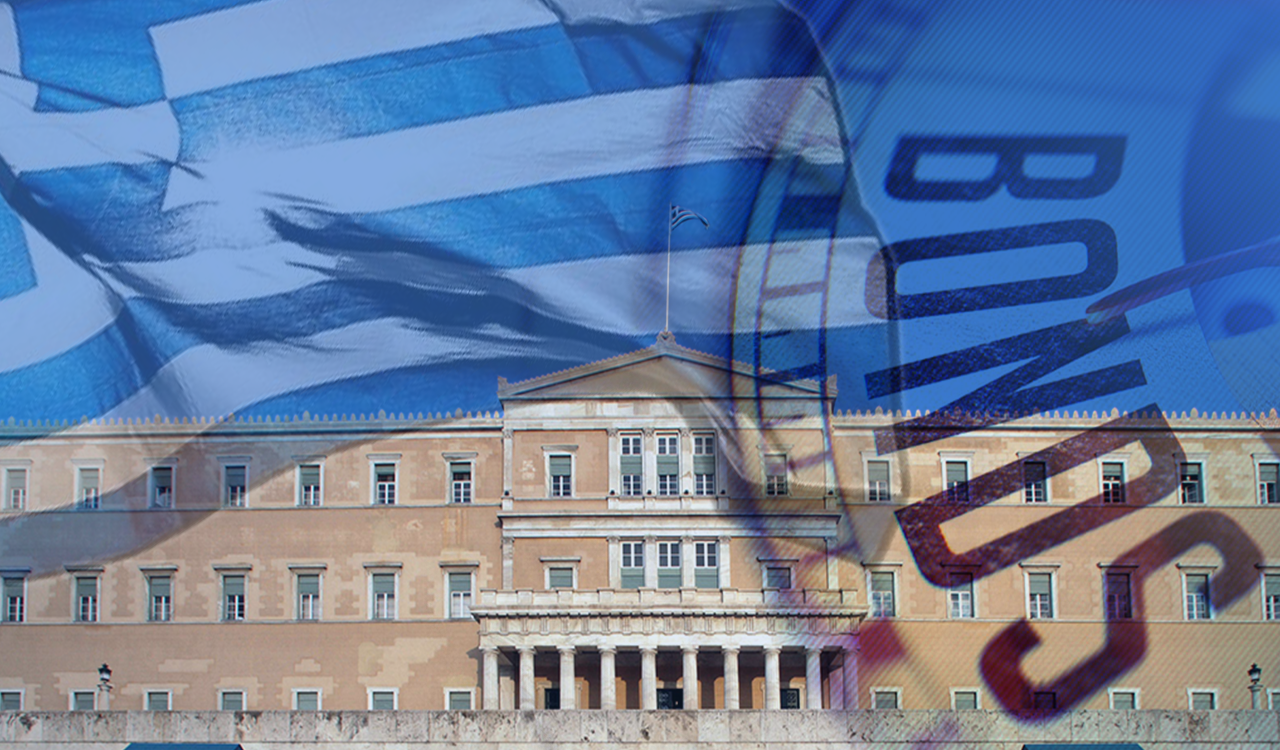
In the shadow of the war and the turmoil in the international energy and bond markets, alarms in the field of fiscal management are starting to ring. Russia’s attack on Ukraine is once again putting the European economy in turbulent waters ahead of the debate over changes to fiscal rules.
The core of the Institutions’ 13th assessment was positive, but at the same time, it had the “scent” of fiscal adjustment – without also omitting the dual sources of uncertainty from the energy and health fronts.
The pandemic added about 32 billion euros to the Greek debt (to 388.3 billion euros last December, from 356 billion euros at the end of 2019) and boosted the deficit to 9.5% in 2020 and 7% in 2021. The interest of this Institution report focuses on the adjustment target: its baseline scenario estimates the primary surplus at 1.5% for 2023 and then 2.2%. In short, the 1.2% deficit this year will require an adjustment of 2.7% of GDP or about 5 billion euros in 2023.
An out-of-forecast escalation in international energy markets and the maintenance of a climate of war may bring about change. Mainly on the “front” of benefits to households and businesses.
In fact, at a time when the financial staff is seeking to ensure the positive ratings of international agencies within the year, which will pave the way for the recovery of the investment grade in 2023. As predicted by the analysts of the rating companies, the catalysts for the upgrade is fiscal adjustment and the macroeconomic outlook. In this light, the warnings of the Institutions are very important in the 13th evaluation, which points out the risk of pandemic and energy prices, where, however, it recommends careful monitoring of the system, so that the account of renewable energy sources does not become a deficit.
Bond issues until the end of 2022
The view that the ECB should continue buying bonds at least until the end of the year to cushion the fallout from the Ukraine crisis was expressed by the Governor of the Bank of Greece Giannis Stournaras in an interview in Reuters in the light of new developments in the Ukrainian.
Mr Stournaras said the ECB should formally remove interest rates from the table, noting that the economic outlook is now “much more uncertain” which means the ECB should be especially careful. He said the crisis is expected to push prices “in the medium to long term” after an initial peak. Investors expect the ECB to announce its intention to end its regular bond buying program (APP) at its next meeting on March 10, paving the way for raising interest rates by the end of the year.
Latest News

Economist: Greece Included in the Best Performing Economies in 2024
Meanwhile, Northern European countries disappoint, with sluggish performances from the United Kingdom and Germany.

EasyJet Expands Its Routes from Athens
The airline’s two new routes will be to London Luton and Alicante and they will commence in summer 2025.

Capital Link Forum Highlights Greece’s Economic Resurgence; Honors BoG Gov Stournaras
Capital Link Hellenic Leadership Award recipient, Bank of Greece Gov. Yannis Stournaras, an ex-FinMin, was lauded for his pivotal role during Greece’s economic recovery

Tourist Spending in Greece Up by 14%, Visa Card Analysis Shows
Greece’s capital Athens emerged as the most popular destination, recording a 17% increase in transactions with Visa cards, surpassing even the cosmopolitan island of Mykonos.

Inflation in Greece Unchanged at 2.4% in Nov. 2024
The general consumer price index (CPI) posted a 0.4% decrease in November compared to the previous month

2024 Christmas Holidays: Extended Shop Hours Schedule
The 2024 Christmas Holidays extended shop hours schedule commences on Thursday, December 12 and runs until the end of the year.

ELSTAT: Seasonally Adjusted Unemployment Down in October
The number of employed individuals reached 4,284,694, an increase of 67,723 compared to October 2023 (+1.6%) and 22,002 compared to September 2024 (+0.5%).

Greek PM’s Chief Economic Adviser Resigns
In the post on his Facebook page, Patelis did not disclose the reasons that led him to step down.

“Masdar Invests in the people of Greece and in the vision of TERNA ENERGY”
Four messages from the CEO of Masdar, the Arab renewable energy giant, after its acquisition of 70% of TERNA ENERGY

Lloyd’s List Greek Shipping Awards 2024: Honors for leading companies and personalities in the Greek shipping sector
20 awards presented at the 21st annual Lloyd's List Greek Shipping Awards


















![Χειμερινή εξοχική κατοικία: Οι Ελληνες γυρνούν την πλάτη παρά την πτώση των τιμών [γραφήματα]](https://www.ot.gr/wp-content/uploads/2024/12/Capture-19-90x90.jpg)























 Αριθμός Πιστοποίησης Μ.Η.Τ.232433
Αριθμός Πιστοποίησης Μ.Η.Τ.232433